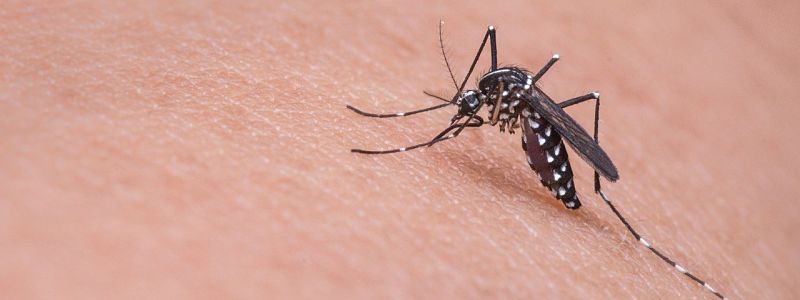
Yellow fever is a viral disease spread by mosquito bites. It is present in Kenya, as well as in many other African and South American countries.
Most cases last a matter of days and, while the symptoms are unpleasant, will leave the individual with lifelong immunity. However, in some cases, the virus can make people seriously ill.
For this reason, a vaccination exists to help prevent people from catching yellow fever and to stop the disease from spreading. Travelers who have had the vaccination may be required to carry a certificate proving this.
If you’re planning on visiting Kenya soon, learn about Kenya’s yellow fever requirements and guidelines below.
Is the Yellow Fever Vaccination Required for Kenya?
It is not generally a requirement to have the yellow fever vaccination to visit Kenya. However, one exception is visitors coming to Kenya from another country where the risk of transmitting yellow fever is high. All travelers over the age of one year are required to have the yellow fever vaccination if they have:
- Recently visited a high-risk country
- Spent over 12 hours in transit in a high-risk country
These travelers must present a yellow fever vaccination certificate upon entering the country, along with their passport and Kenyan eTA, if applicable.
This requirement is in place to control the spread of the disease and reduce transmission between areas affected by the Aedes aegypti mosquito, which carries the yellow fever virus.
A yellow fever vaccination certificate may be required by certain travelers’ home countries upon returning from Kenya to ensure the virus is not carried back with them. Examples include Australia, India, and Thailand. It is important to check your own nation’s yellow fever requirements in addition to Kenya’s.
Learn more about the vaccinations required to go to Kenya.
Countries with risk of yellow fever transmission
- AFRICA – Angola, Benin, Burkina Faso, Cameroon, Central African Republic, Chad, Republic of the Congo, Democratic Republic of the Congo, Côte d’Ivoire, Equatorial Guinea, Ethiopia, Gabon, Gambia, Ghana, Guinea, Guinea-Bissau, Kenya, Liberia, Mali, Mauritania, Niger, Nigeria, Senegal, Sierra Leone, South Sudan, Sudan, Togo, Uganda.
- AMERICAS – Argentina, Brazil, Colombia, Ecuador, French Guiana, Guyana, Panama, Paraguay, Peru, Suriname, Trinidad and Tobago, Venezuela.
Validity of certificate
Yellow Fever vaccination certificates are valid for life.
On July 11, 2016, the World Health Organization announced that countries can no longer require travelers to show proof of re-vaccination or a booster dose as a condition of entry.
Is the Yellow Fever Vaccination Recommended for Kenya?
As explained, for the majority of travelers, there is no yellow fever requirement for Kenya. However, Kenya is part of Africa’s yellow fever endemic zone. As such, all visitors over 9 months of age are advised to be vaccinated against the disease.
The yellow fever vaccination is highly recommended for visitors planning to go to high-risk areas where the disease is prevalent. The same applies to those going on a safari or to the more rural parts of the country.
Urban areas tend to be affected much less by yellow fever, although outbreaks occasionally occur in cities. Travelers going to built-up places like Mombasa and Nairobi may prefer to take anti-mosquito measures rather than the vaccination, although this will not eliminate the risk of catching yellow fever completely.
How far in advance do you need the yellow fever vaccine?
All visitors older than 9 months going to high-risk parts of Kenya are advised to have their yellow fever vaccination a minimum of 10 days before they travel.
How Serious is Yellow Fever?
Yellow fever is an unpleasant disease, which can be serious or even fatal.
The virus is carried by _Aedes aegypti _mosquitos which tend to bite during the day time.
Symptoms of yellow fever include:
- Fever
- Chills
- Aching muscles
- Aching back
- Headache
- Nausea
- Vomiting
In a minority of cases (around 15%), symptoms are more extreme. The affected individual’s body can go into shock. They may experience bleeding, organ failure, and even death (in 3-5% of cases).
What should you do if you have yellow fever symptoms?
Although the majority of people who have yellow fever make a full recovery, if you experience symptoms after or while visiting Kenya you should consult your healthcare provider immediately.
You should also take steps to protect yourself from further mosquito bites, to help prevent the disease from spreading.
There is no cure for yellow fever. However, certain measures can be taken to ease symptoms and aid recovery. These include:
- Rest
- Drinking plenty of fluids
- Certain pain relief medication (consult your doctor first, as certain anti-inflammatories like ibuprofen should be avoided with yellow fever)
People exhibiting severe symptoms of yellow fever should go to a hospital and be kept under observation.